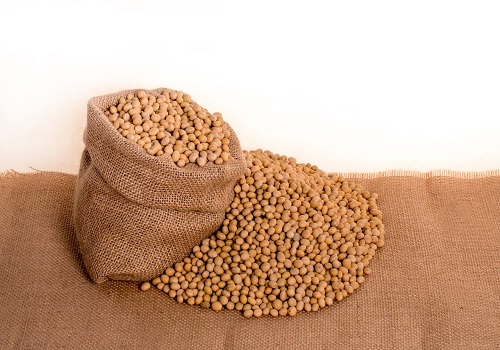China's Abrupt Cancellation of U.S. Soybean Shipments Shakes Global Trade, India Feels the Ripples by Amit Gupta, Kedia Advisory


Key Highlights:
* China canceled U.S. soybean shipments mid-transport, rerouting demand toward Brazil.
* U.S. soybean inventories surged by 13% following the cancellations, reflecting immediate trade impacts.
* American farmers describe the event as economic isolation, not merely a trade dispute.
* China’s strategic pivot raises concerns about future targeting of other U.S. commodities.
* India's soybean market is poised to face ripple effects amid evolving global supply chains.
A major disruption has unfolded in the global agricultural market after China abruptly canceled U.S. soybean shipments, sending shockwaves through international trade channels. The action was executed while cargo ships were already en route, with exporters informed to halt deliveries immediately, signaling a dramatic shift in China's procurement strategy amidst escalating trade tensions. Described by observers as a "controlled demolition" rather than a conventional trade war, the move targets the heart of American agricultural exports. China’s decision to cancel existing orders and swiftly redirect its soybean purchases to Brazil underscores a larger strategic maneuver beyond mere tariff disputes. The U.S. Department of Agriculture (USDA) reported a 13% rise in unsold U.S. soybean inventories shortly after the cancellations, reflecting the immediate commercial fallout. On the ground, U.S. farmers voiced deeper concerns, framing the developments as part of a broader economic isolation campaign rather than a temporary disagreement. A farmer's perspective featured in coverage emphasized that the abrupt halt in trade represents a deliberate push by China to destabilize a key sector of the American economy.
China’s pivot to Brazil also reflects significant prior investments in agricultural infrastructure within Latin America. This realignment is not viewed as a temporary fix but rather as a calculated reorganization of food supply chains, with longer-term implications for global commodity markets. Furthermore, by employing non-tariff barriers instead of official sanctions, China sidesteps potential action under World Trade Organization (WTO) frameworks, signaling an increasingly unpredictable environment for U.S. exporters. Compounding the strategic shift, China has also auctioned off U.S. corn from its state reserves. As per market talk suggest this move illustrates growing distrust and signals a broader strategic recalibration in agricultural imports, pointing to potential future moves against other sectors such as semiconductors.
For India, the impact of this evolving trade landscape is becoming increasingly relevant. As China turns away from U.S. supplies and consolidates ties with Brazil, global soybean supply chains are being rebalanced. This development could introduce heightened price volatility for Indian soybean markets, as global supply surpluses and deficits reconfigure traditional trade flows. Indian traders, who are sensitive to international supply-demand shifts, may see downward pressure on prices in the near term due to expanded availability of U.S. soybeans in non-Chinese markets, alongside possible price competitiveness from Brazilian supplies. The developments raise important questions about the durability of U.S. agricultural exports and the broader economic relationship between the U.S. and China. The ripple effects are already being felt beyond the two superpowers, signaling a future where India's soybean sector must adapt to a more fragmented and unpredictable global trade environment.
Looking ahead, as China deepens its agricultural realignment with Brazil and signals willingness to disrupt multiple commodities, the global agricultural trade system is poised for a structural reshaping. The Indian soybean market faces rising risks from intensified Brazilian competition, increased volatility linked to CBOT trends, and growing soyoil imports hurting domestic crushing. With farm-gate prices at risk of a 5–8% fall, India's soy sector must brace for heightened global pressures ahead.
Above views are of the author and not of the website kindly read disclaimer










More News

Quote on Gold by Jateen Trivedi, VP Research Analyst - Commodity and Currency, LKP Securities











